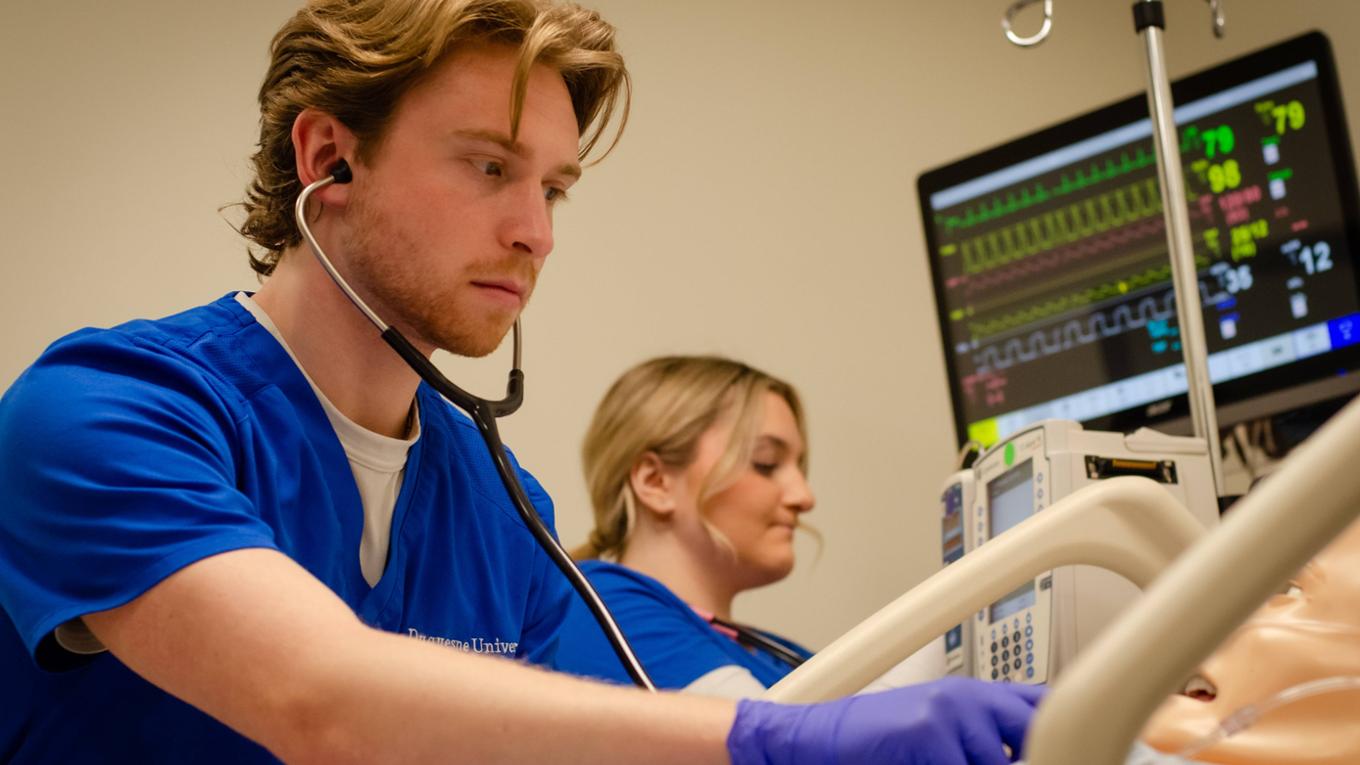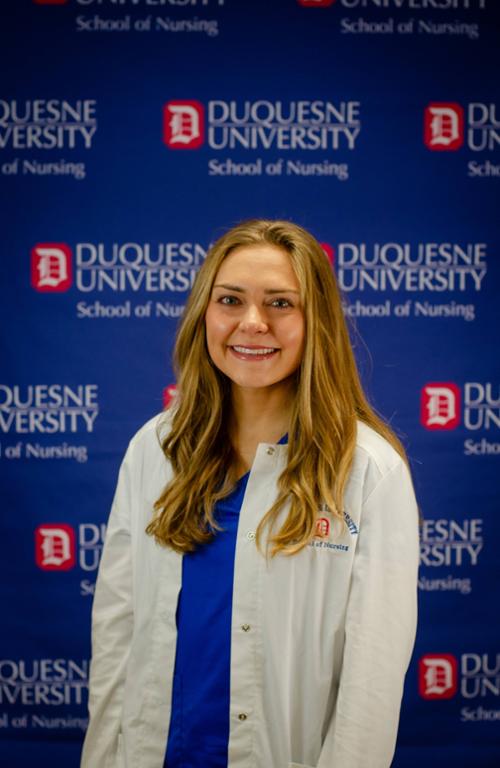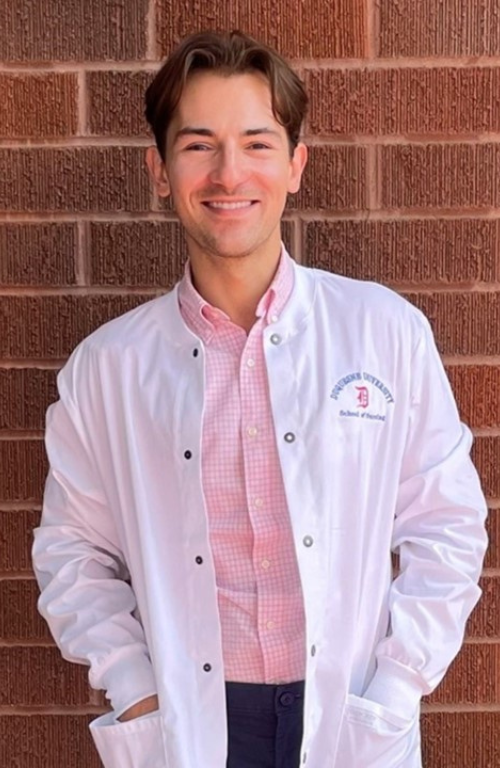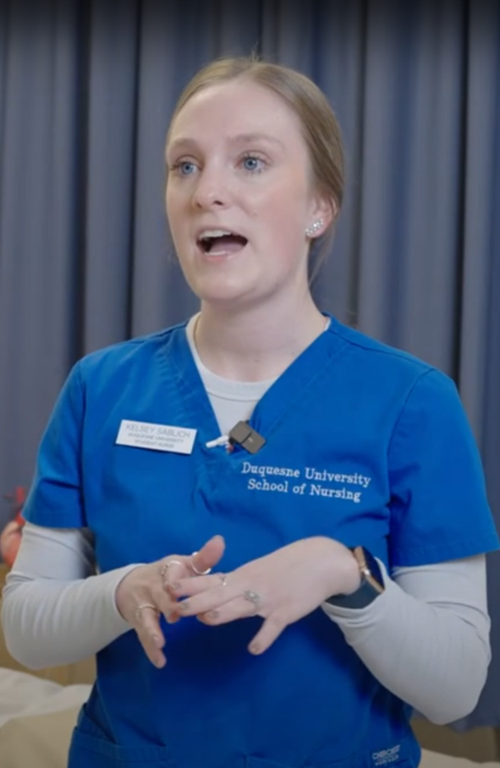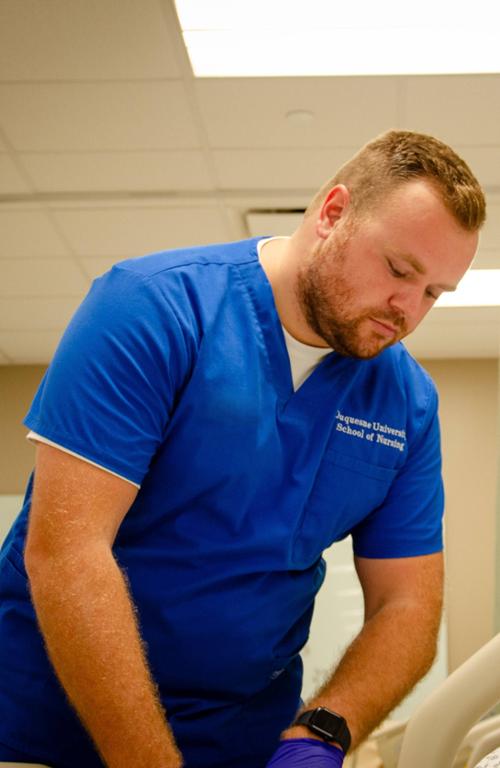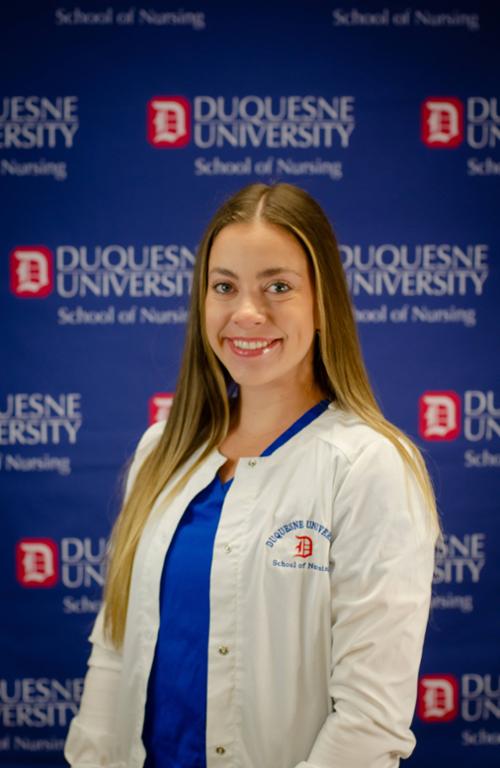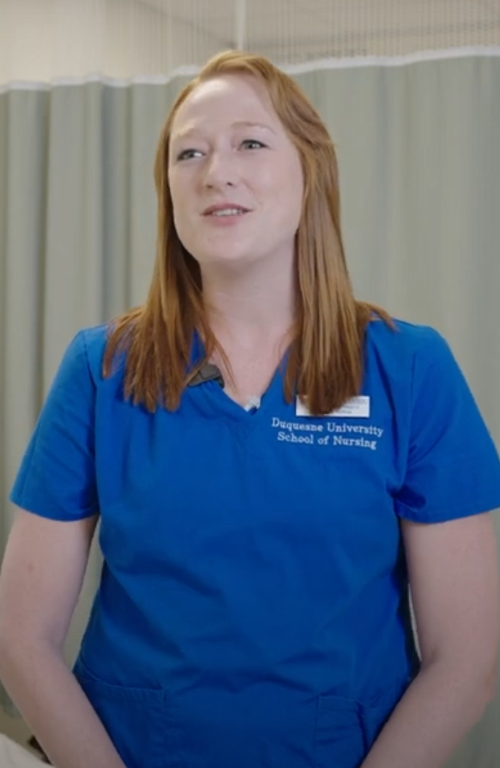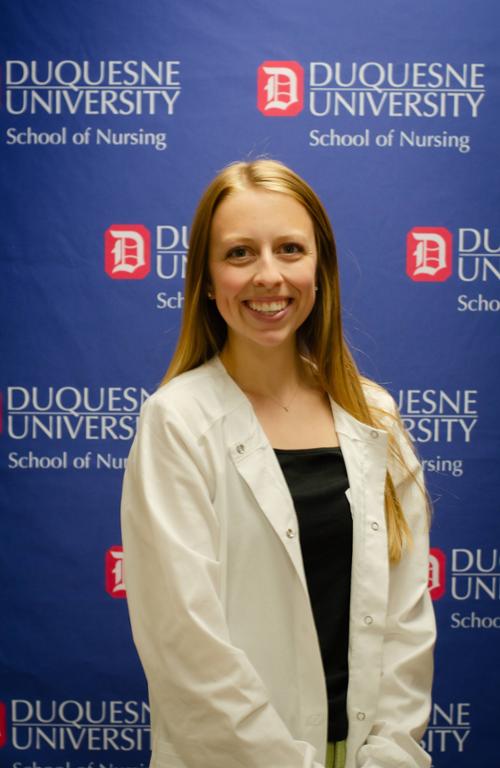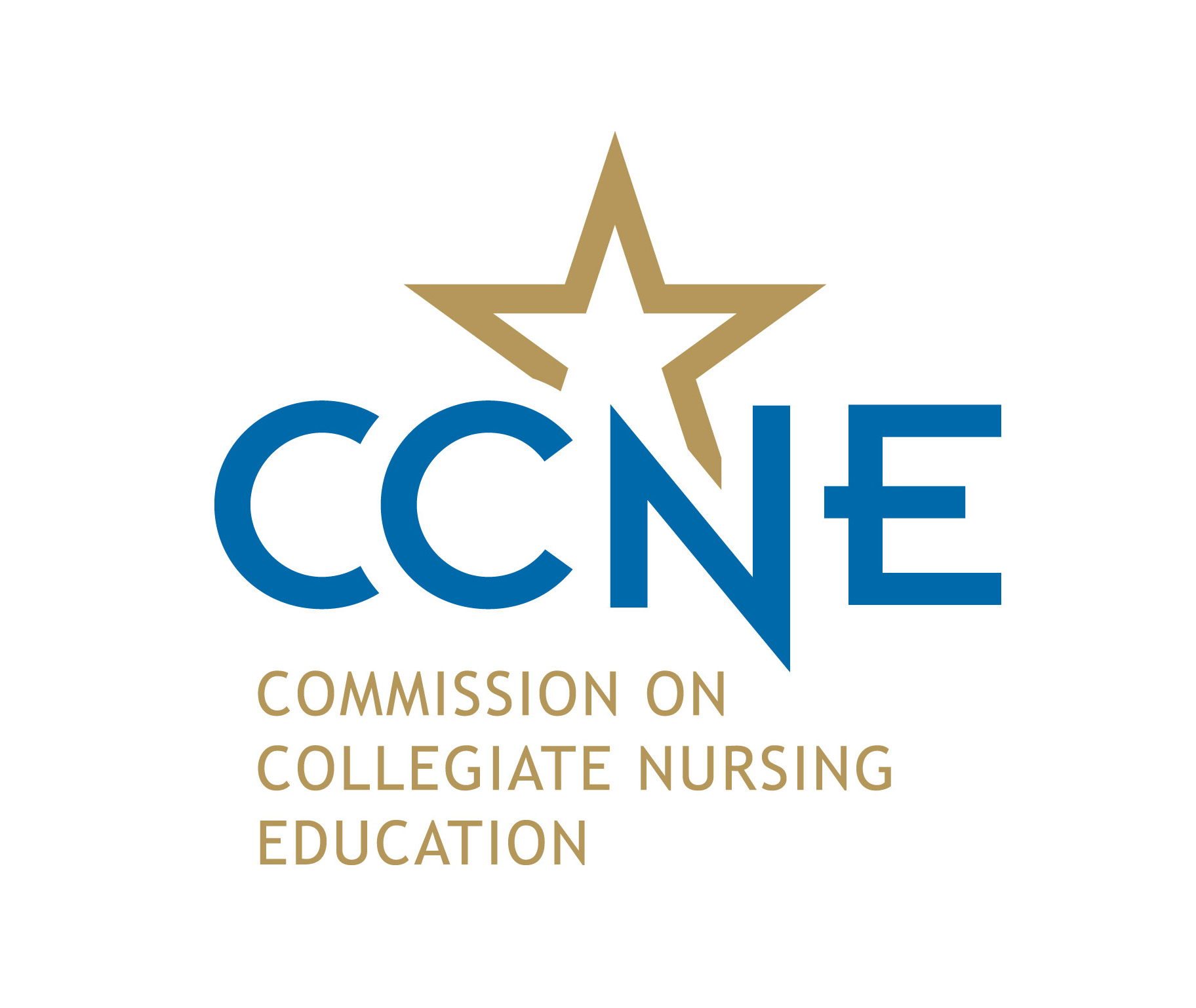Second Degree BSN
Pursuing a second degree in nursing can be a life-changing decision towards a rewarding career. By leveraging knowledge and experience from your first degree, our program is a unique opportunity to build upon your existing skillset and experiences. We provide you with a strong clinical foundation beginning in your first week of study. These hands-on learning opportunities take place in our many clinical sites and state-of-the-art Learning and Simulation Center.
By the end of the program, you will be prepared to become a Registered Nurse (RN). Our most recent class scored a 100% first-time pass rate on the NCLEX-RN licensure exam.
Attend a virtual information session to learn more about the Second Degree BSN program and your next steps to enrollment.
Have questions? Check our FAQs for quick answers about admissions and program details.
Applications for Fall 2026 open Aug 1.
REQUEST INFO
Apply Now
Program Information
Earn a Bachelor of Science in Nursing (BSN) in 12 or 16 months through our accelerated Second Degree BSN program. This onsite nursing program is for those who already have a non-nursing bachelor's degree.
Program Type
Major
Degree
Bachelor's
School
Academic Department
Undergraduate Programs (Nursing)
Duration
12 or 16 months
Required Credit Hours
67
Modality
In-Person
We will help you prepare to be successful on the NCLEX-RN exam, which you are eligible
to take after graduation for licensure as a registered nurse (RN). Our graduates who
tested in the Q1 2026 cycle achieved a 100% NCLEX-RN Exam first-time pass rate.100% NCLEX-RN Pass Rate
Student and Alumni Perspectives
More about BSN Second Degree
Application Resources
Submit Your Deposit
Please log in to your Duquesne Applicant Portal and complete your Enrollment Response Form.
Prerequisite Coursework
Your acceptance letter will inform you if you have outstanding prerequisites. Please
be sure to review your application portal to determine what courses need completed.
The official transcripts for these are due on August 17, 2026.
No exceptions will be made.
Financial Aid
Visit the Office of Financial Aid web site for detailed information on applying for financial aid. They can be contacted by -
Phone: (412) 396-6607, or
Email: faofficeFREEDUQUESNE
How Credits are Calculated
Transfer credits from your previous degree - 36 credits
Prerequisites* taken for the Second Degree Program - 25 credits
Credits taken at Duquesne University School of Nursing in the Second Degree Program
- 67 credits
Total Credits for the Second Degree Program - 128 credits
*Prerequisites may be completed at any accredited college or university, and online coursework is acceptable. For example, we do accept credit from Portage Learning, which offers all prerequisite courses required for the Second Degree program.
Viewbooks, Catalogs, and Handbooks
Information for International Students
Second Degree BSN admissions process and requirements for international students
Access the Duquesne Immigration Portal
The Center for Global Engagement's accepted students site, DuqGlobal, for complete
information on submitting the necessary forms, applying for your visa and international
student orientation.
Course Registration
Your academic advisor will contact you towards the beginning of summer to ensure your course registration. For more information on course registration, visit the Office of the University Registrar.
Fall Semester - 22 credits Spring Semester - 24 credits Summer Semester - 21 credits W = Writing Intensive Revisions to curricula are ongoing. Fall Semester - 19 credits Spring Semester - 18 credits Summer Semester - 12 credits Fall Semester - 18 credits W = Writing Intensive Revisions to curricula are ongoing. *** These four Specialty Courses are taken in the spring and fall semesters. Half
of the 16-month students will take Nursing for Children’s Health and Nursing for Maternal-Newborn
Health in the spring, and Behavioral Health and Population Health in the fall. The
other half will take the reverse sequence. Commonly asked questions about the BSN Second Degree program The NCLEX-RN Exam is the National Certification Licensure Examination for Registered
Nurses. All nursing students are required by law to take the NCLEX-RN in order to
become licensed registered nurses. The NCLEX-RN is taken after graduation from an
accredited nursing program. NCLEX preparation begins in the first semester of the Second Degree Program. Students
use particular software programs to promote success in their courses as well as on
the NCLEX. Faculty are committed to active learning strategies that enhance critical
thinking and test taking skills. Nursing exams are constructed similarly to the NCLEX
and NCLEX questions are used during class time as a teaching strategy. Students take a specific nursing course in the final semester that focuses on the
NCLEX-RN exam. Students will have the opportunity to take standardized clinical specialty
exams and a comprehensive exam to prepare them for the NCLEX-RN exam. Duquesne employs
the Health Education Systems Incorporated (HESI), a United States company that provides
exams and other educational material designed to prepare student nurses for professional
licensure and predict their likely success in tests such as the NCLEX-RN. Duquesne
requires a score of 900 on the Exit HESI Exam in the student's final course, Role
Preparation II.Curriculum
Frequently Asked Questions
Ask a Question
Do you have questions about the Second Degree program?
Kylie Woodward
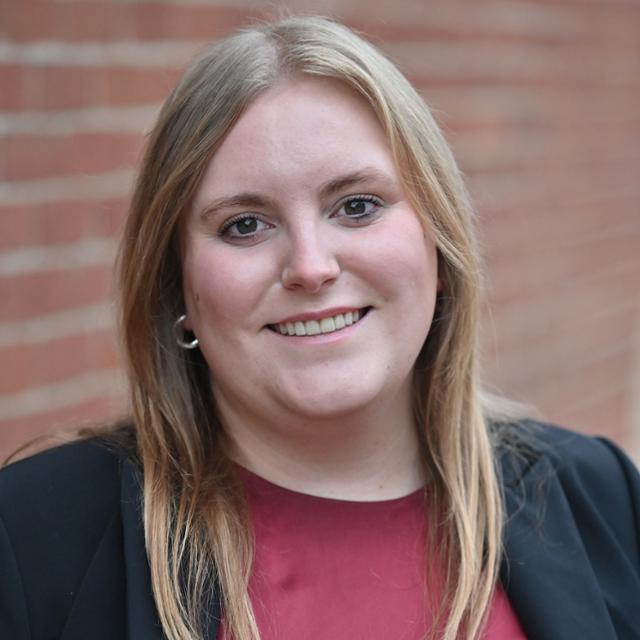
The Second Degree BSN program at Duquesne University School of Nursing is accredited
by the Commission on Collegiate Nursing Education (CCNE).
Additional Resources
Explore Housing Options
Parking/Transportation Options
Health Insurance
Learning Outcomes
Accreditation


